When I found out that I was pregnant one of the first things I did - because, Beauty Director - was interrogate my skincare routine, what swaps was I going to be obliged to make in order to curate a pregnancy-safe skincare routine? Not only had my skin celebrated my first trimester by hosting a breakout party (enter a peppering of pimples around my mouth and jawline), but I was vaguely aware that a few key items were off limits, I just didn't know what.
We can hazard a guess that Hailey Bieber, who just announced she is expecting her first child with husband Justin Bieber, has recently had similar thoughts. It's obvious that the model-turned-brand founder is serious about skincare: she has developed her own line of skin heroes with Rhode and recently opened up about her struggles with perioral dermatitis, which has pushed her to stick to a robust regimen. With all that said, how should one approach skincare when pregnant?
The good news? Pregnancy-safe skincare required much less of a routine overhaul than I had anticipated. I had visions of mournfully pushing my high-tech serums to the back of my bathroom cabinet and reducing my daily skincare regimen to an organic, 100% naturally derived moisturiser and not much else, but not so. Coffee may be off the table, but an effective skincare routine is not. Here's everything you need to know:
What acne skin treatments can I use during pregnancy?
According to consultant dermatologist and founder of Self London, Dr Anjali Mahto, acne during pregnancy is very common. 'Surges of the hormone progesterone can lead to increased oil production,' says Dr Mahto, 'which drives spots and breakouts.' Many over-the-counter skincare ingredients that are known to temper breakouts are perfectly safe to use during pregnancy - Dr Mahto interrogates these below - but treatments to avoid include all retinoids (oral or topical), spironolactone and certain antibiotics. If you are on any prescription treatments or medicines for your acne prior to pregnancy, you should discuss the continued use of them with your doctor, as most will not be considered pregnancy-safe.
'If you are struggling with pregnancy acne, then it is important to seek advice from your GP or dermatologist,' says Dr Mahto, 'the following advice is generic and cannot be specifically tailored to the individual without clinical assessment and review.' 'Acne should not be dismissed as a given part of pregnancy,' continues Dr Mahto, 'and choosing to treat it during pregnancy is a personal decision. The safest approach when considering any product related to treating acne during pregnancy is to have a frank discussion with your doctor or dermatologist, who will be able to guide you.'
Can I use salicylic acid in my skincare during pregnancy?
'Over-the-counter face washes containing salicylic acid are considered pregnancy-safe at concentrations of no more than 2% for limited periods of time,' says Dr Mahto, 'though salicylic acid is sometimes considered a risk when used in higher concentrations, so steer clear of salicylic acid based chemical peels for instance.' 'Oral salicylic acid is not safe,' notes Dr Mahto, 'and before using any form of salicylic acid in your skincare during pregnancy it its best to discuss with your GP or a dermatologist.'
Can I use over-the-counter alpha-hydroxy acids (AHAs) such as glycolic acid and lactic acid during pregnancy?
'Over-the-counter alpha-hydroxy acids (AHAs) such as glycolic and lactic acid are generally considered pregnancy-safe in skincare products,' says Dr Mahto, 'high concentrations such as the levels of these acids found in chemical peels, though, should be avoided.'
Can I use azelaic acid in my skincare during pregnancy?
'Topical azelaic acid is a good option for those looking to temper acne during pregnancy,' says Dr Mahto, 'azelaic acid is renowned for its anti-inflammatory effects, as well as its ability to reduce pigmentation, which many experience an uptick in during pregnancy.' 'Azelaic acid can be obtained over-the-counter in strengths of 10% or on prescription, for example Finacea (15%), or Skinoren (20%).' Azelaic acid has always been one of the biggest game-changers when it comes to managing my acne, which seems to be ruled by my hormones. I have been using Dermatica's Azelaic Acid Cream 20%throughout my pregnancy.
Can I use benzoyl peroxide to treat acne during pregnancy?
'Topical benozyl peroxide in concentrations of up to 5% in limited amounts is considered pregnancy-safe,' says Dr Mahto. Consult with your GP or dermatologist who can let you know how much you should be applying and for how long.
Can I use any antibiotics to treat acne during pregnancy?
Many antibiotics commonly prescribed for acne are off limits during pregnancy, so if you are taking antibiotics for this purpose and find out you are pregnant, stop using them unless you have had the official sign off from your GP or dermatologist - they may not be pregnancy-safe. 'Certain antibiotics, for example erythromycin, can be prescribed by your GP or dermatologist,' says Dr Mahto.
Can I use vitamin C in my skincare during pregnancy?
According to skin specialist and founder of Nuriss Clinic and Decree Skincare, Dr Anita Sturnham, vitamin C is not only considered to be pregnancy-safe skincare but also a great product to use to temper the increased levels of pigmentation many people experience during pregnancy. 'A good quality antioxidant serum like a vitamin C serum can work to brighten, prevent free radical damage and temper pigment production,' says Dr Sturnham, 'in fact vitamin C works particularly well when combined with ferulic acid and niacinamide, both of which help to reduce pigmentation by blocking the transfer of melanin to the keratinocyte cells.'
Can I use retinol in my skincare during pregnancy?
'All retinoids (oral or topical) are off limits during pregnancy and while you are breast feeding,' says Dr Mahto. Vitamin A plays a vital role on foetal development, and using any form of vitamin A on your skin - that means any retinoids at all - could have a damaging effect on foetal development.
Shop: My Pregnancy-Safe Skincare Routine
SkinCeuticals C E Ferulic Vitamin C Serum
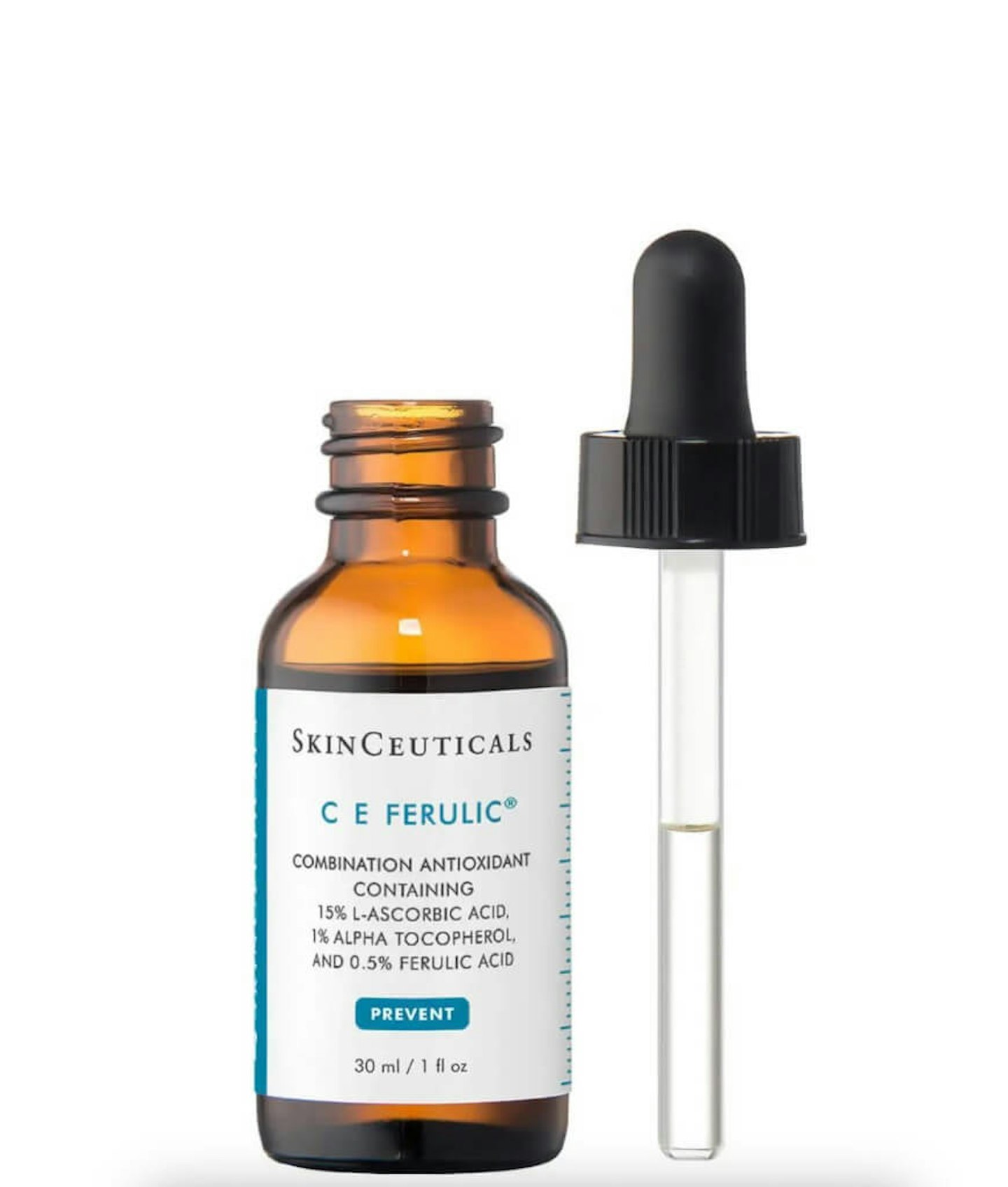 SkinCeuticals
SkinCeuticalswww.skinceuticals.co.uk
I have been using this vitamin C serum for years and was very glad when I realised I wouldn't have to give it up during my pregnancy. SkinCeuticals say that all their skincare products are pregnancy-safe apart from their retinols, or any of their products that contain retinoids. This one's also a favourite of Sienna Miller. I apply a few drops every morning before reaching for my moisturiser.
Decree Peptide Emollient Veil
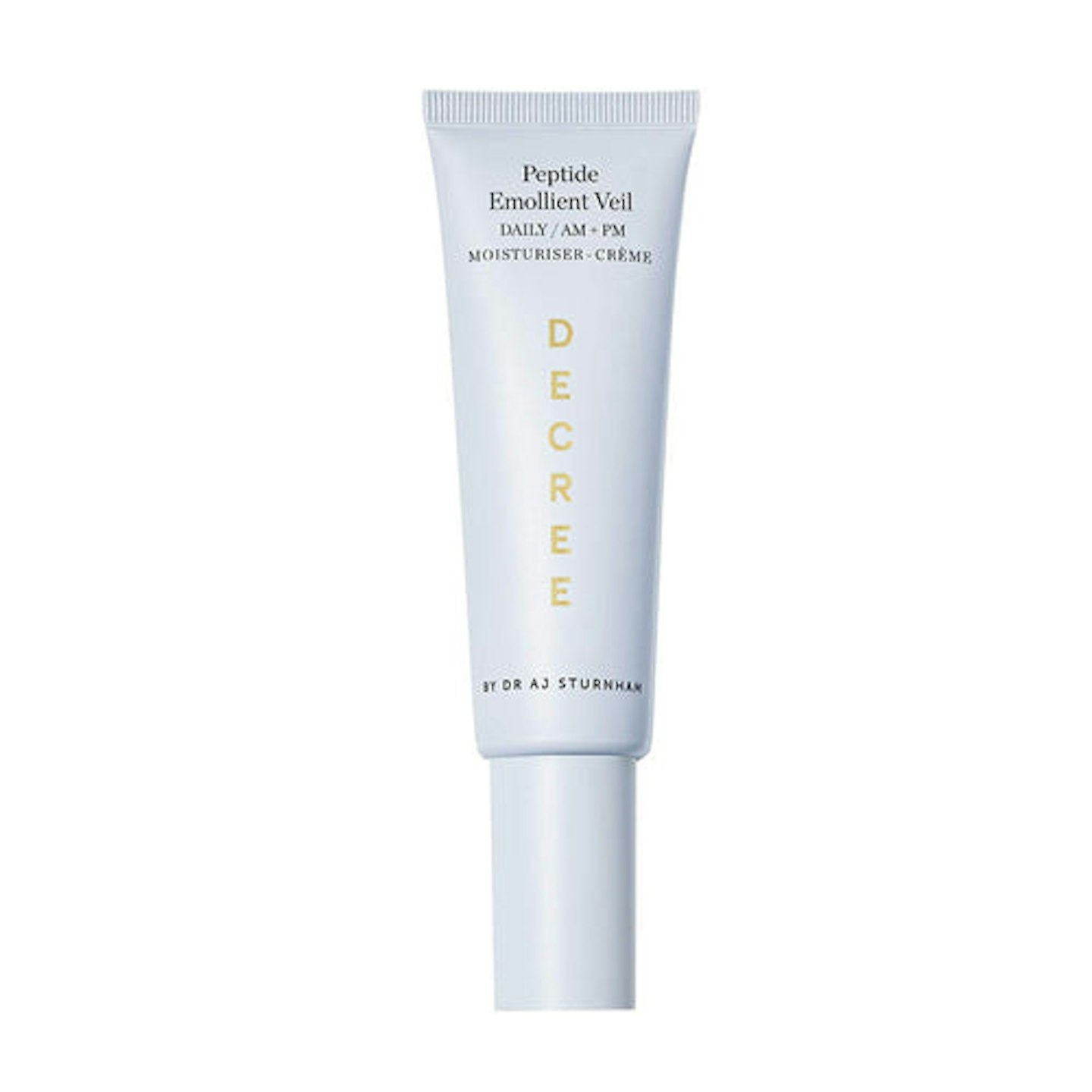 Decree
Decreethedecree.com
Again, a product I have been using for years. It's conditioning, hydrating and plumping, all while being lightweight and glow-giving. Yes, it's got a hefty price tag, but if your prone to splurging on your moisturiser, do give this one a go.
La Roche-Posay Anthelios UVMune 400 Invisible Fluid SPF50+
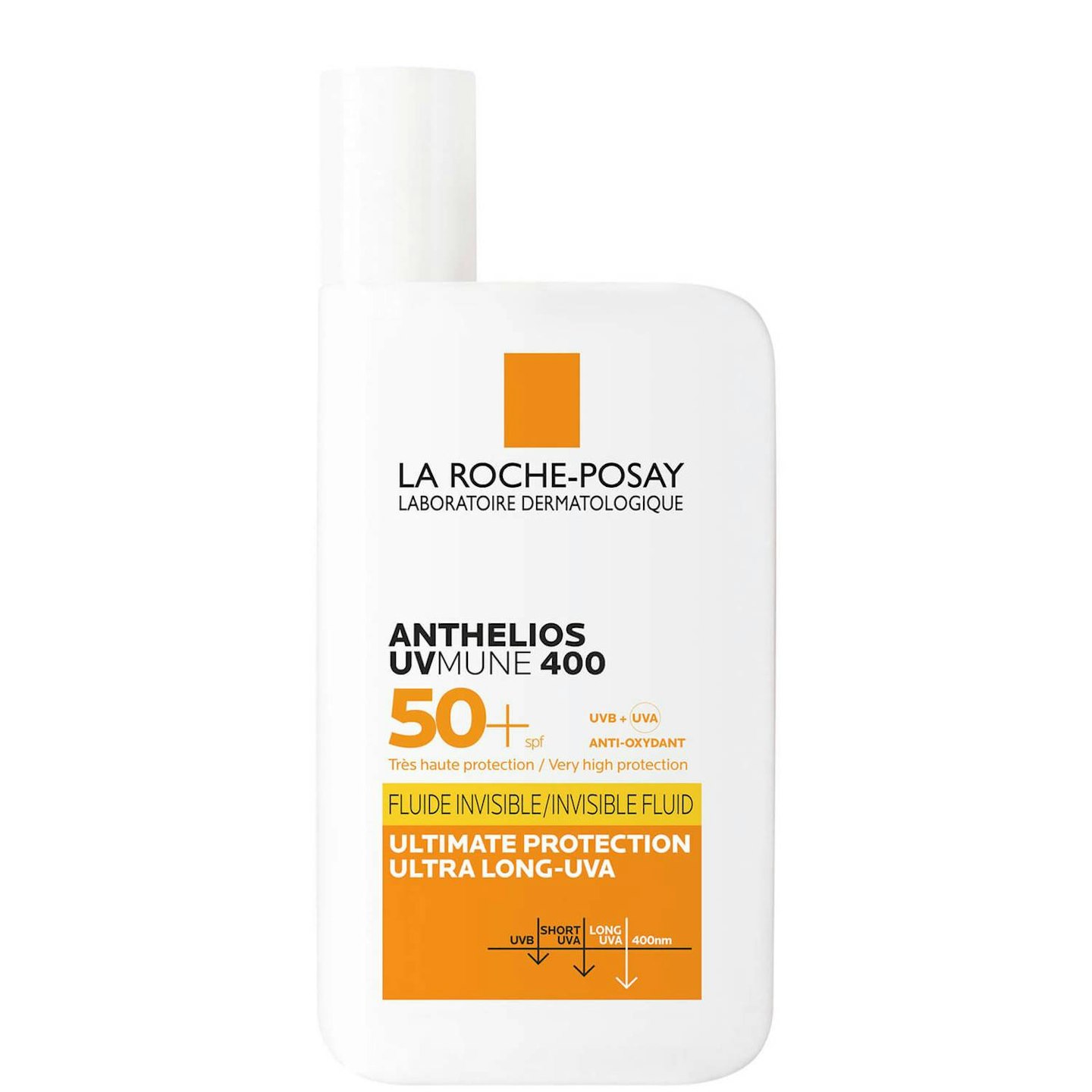 La Roche-Posay
La Roche-Posaywww.lookfantastic.com
A functional, lightweight SPF that I smooth on over my moisturiser to protect my skin everyday, all year round. Many women experience increased pigmentation during pregnancy and good and consistent SPF protection is a huge part of tempering it.
Dermatica Azelaic Acid Cream 20%
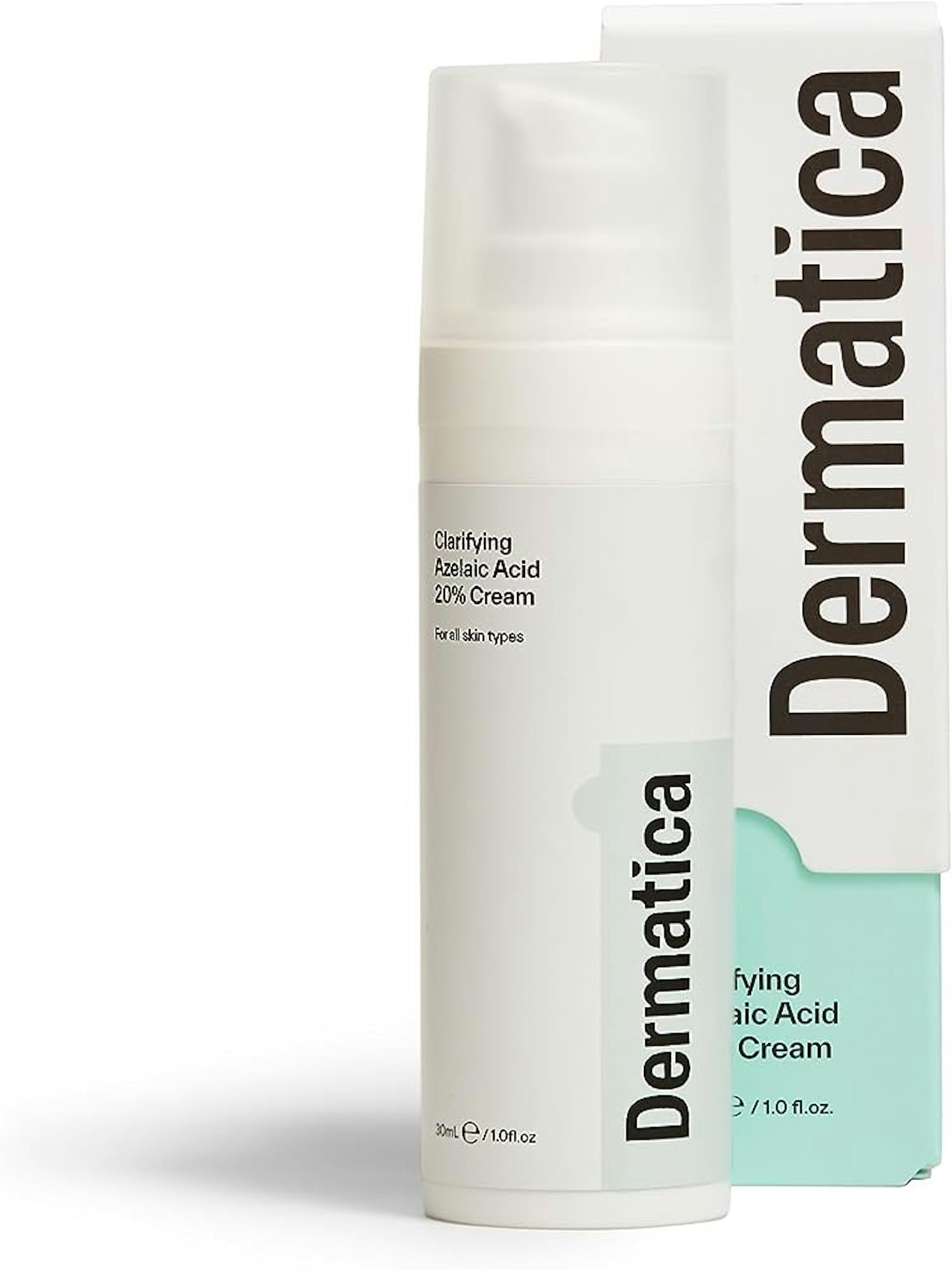 Dermatica
Dermaticawww.dermatica.co.uk
Azelaic acid is a pregnancy-safe way to temper acne during pregnancy. You can buy products containing up to 10% over-the-counter or use prescription services like Dermatica to get your hands on higher concentrations like this one. Always consult with your GP or dermatologist before requesting a prescription or trying a new azelaic acid product though. I spoke to dermatologist Dr Alexis Granite, who confirmed that this cream would be pregnancy-safe for me, but every consultation is specific to the individual, so do seek out advice from your GP or dermatologist that is specific to you. I apply a pea-sized amount to my skin every evening after cleansing. During winter I apply my moisturiser on top, but during summer I find its moisture magnet ingredients like glycerin sufficient.
5.
The Cleanser
CeraVe Foaming Cleanser For Normal To Oily Skin
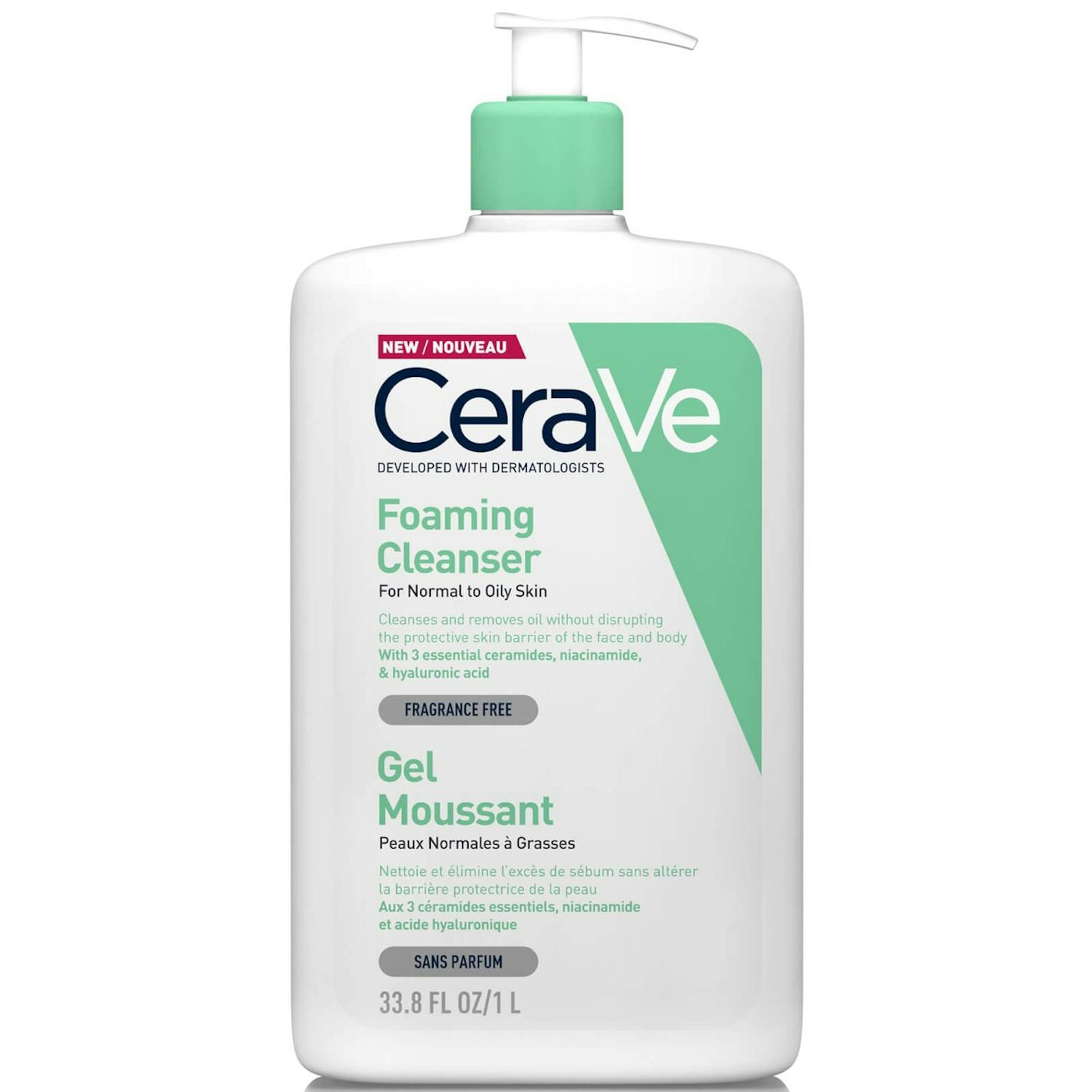 CeraVe
CeraVewww.lookfantastic.com
After whipping off my make-up with micellar water, I reach for a bottle of this. I keep my cleanser simple and I like the fresh feeling you get after using a foaming cleanser. Packed with ceramides and hyaluronic acid, this cleanser makes my skin feel squeaky clean, but not tight or dry.
Main image: Instagram @haileybieber

